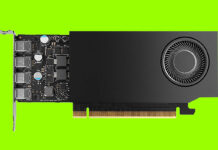ASUS Turbo-RTX2060-6G Rendering Related Benchmarks
Next, we wanted to get a sense of the rendering performance of the ASUS Turbo-RTX2060-6G.
Arion v2.5
Arion Benchmark is a standalone render benchmark based on the commercially available Arion render software from RandomControl. The benchmark is GPU-accelerated using NVIDIA CUDA. However, it is unique in that it can run on both NVIDIA GPUs and CPUs.
Download the Arion Benchmark from here. First-time users will have to register to download the benchmark.
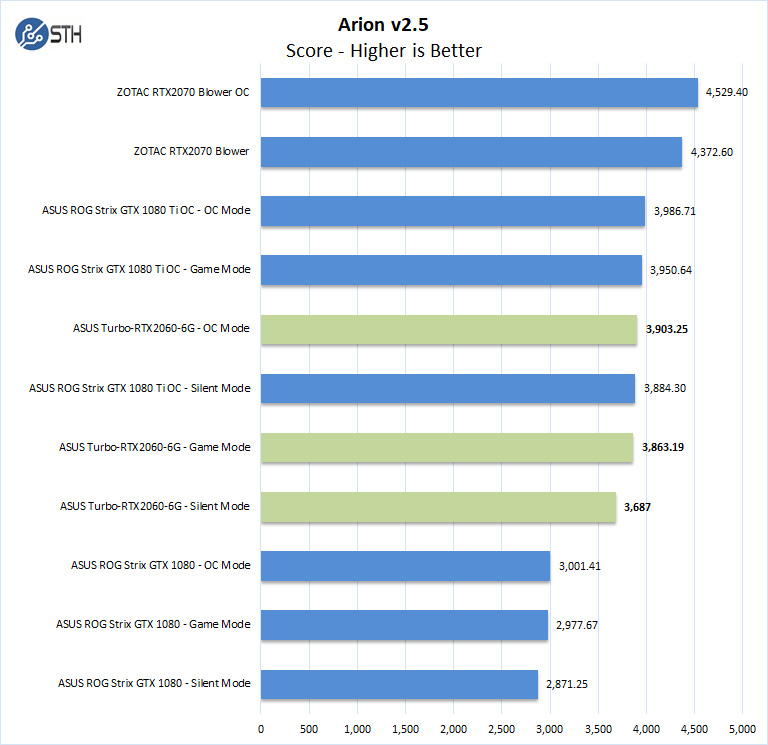
This is another case where the ASUS Turbo-RTX2060-6G is nearing GTX 1080 Ti performance.
MAXON Cinema4D R20
ProRender is an OpenCL based GPU renderer which is available in MAXON’s Cinema4D 3D animation software. A fully functional 42-day trial version is available for downloaded from the MAXON website here. Note: Even after expiration, the trial can still be used to measure render times.
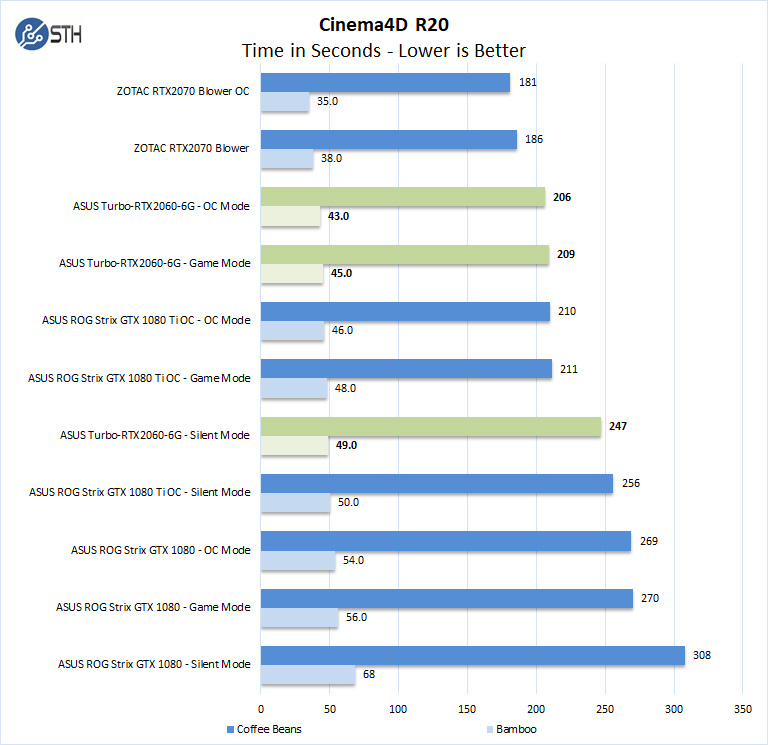
In Cinema4D R20, the ASUS Turbo-RTX2060-6G performed very well. Again coming close to GTX 1080 Ti and RTX 2070 performance.
OctaneRender 4
OctaneRender from Otoy is an unbiased GPU renderer using the CUDA API. The latest release, OctaneRender 4, introduces support for out of core geometry. Octane is available as a standalone rendering application, and a demo version is available for downloaded from the OTOY website here.
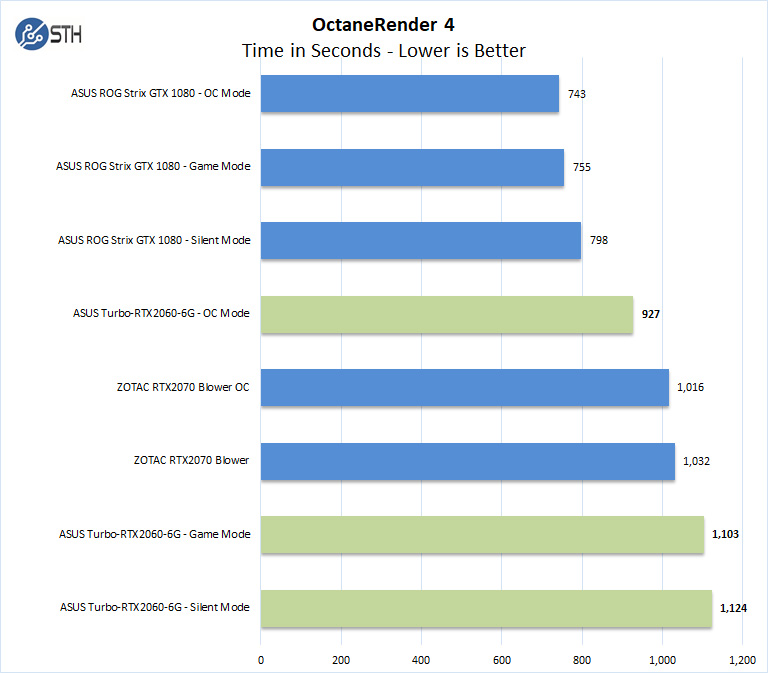
In OctaneRender 4, the performance is again solid with the overclocked ASUS Turbo-RTX2060-6G outpacing the Zotac RTX2070.
Redshift v2.6.32
Redshift is GPU-accelerated renderer with production-quality. A Demo version of this benchmark can be found here.
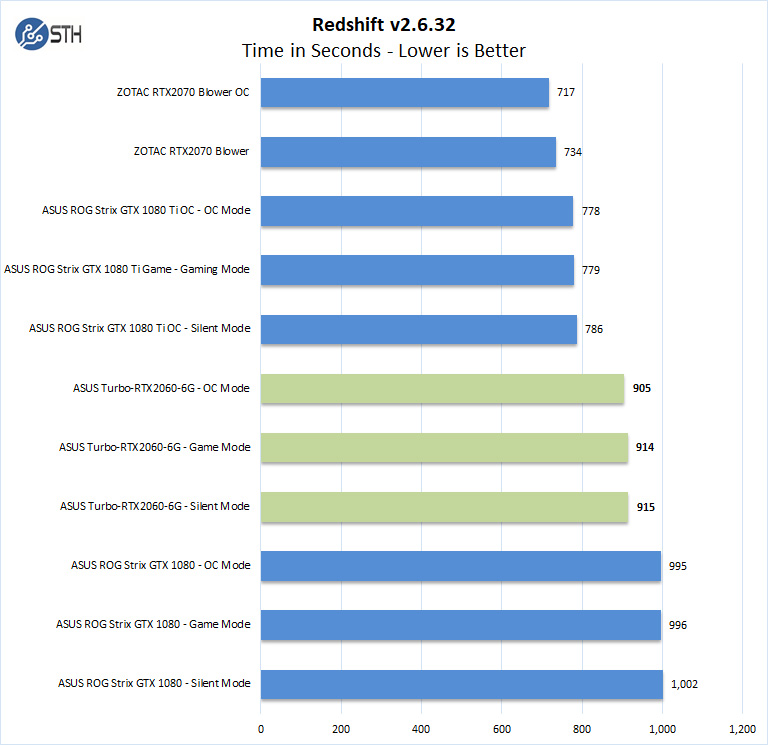
Performance of the ASUS Turbo-RTX2060-6G is just between the GTX 1080 and GTX 1080 Ti which is a good showing.
Next, we will have 3DMark results before moving onto power consumption, thermals, and our final thoughts.


